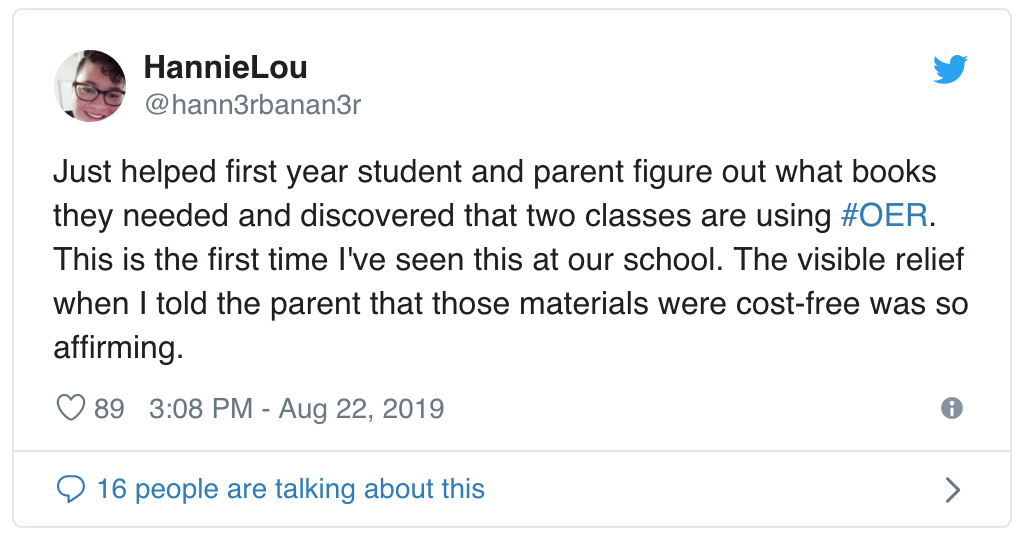52 OPENly Optimistic: My experience with the CPLC
Hannah Davidson
Summer 2019
Last week, my university held its annual professional development event–historically a long, two days of administrator addresses and faculty-focused workshops. This was my sixth or seventh time attending and to my delight, the teeth-gritting energy that has accompanied this event (due to a few years of uncertainty about our institutional health) was replaced with something more calm and even a sweet hint of optimism. I speak for my community when I say we needed this, and I commend the organizers for leading us back to our shared purpose: supporting students.
I am hopeful that a small part of this atmosphere of renewal is the result of the work that seventy faculty and staff members accomplished in the Cluster Pedagogy Learning Community (CPLC) this summer. Our group represents diverse disciplines, experiences, and philosophies and together we created a space to learn, play, and explore, with the shared goal of improving our students’ experience. We spent dozens of hours together, both in person and in asynchronous online spaces, sharing ideas and work-shopping plans to improve our teaching, while focusing on open education, interdisciplinarity, and project-based learning.
When asked to reflect on our experience, I returned to my purpose for joining this community–promoting accessibility and inclusive design. I shared my “key takeaway” from the CPLC during University Days and while not the most articulate statement I’ve ever made, I simply said “I am not the only person who cares about accessibility.” This simple acknowledgement has fundamentally changed my role on campus as an advocate for students with disabilities. My office is staffed by two individuals and together we provide accommodations for 550 students. The work is both rewarding and exhausting. With the increase in demand for services and no plans to increase staffing, we need a team of faculty who understands inclusive design and accessibility and makes pedagogical choices that reflect that understanding. Thanks to the CPLC, we now have that.
I spoke at length with our community about how Open Education is important for students with disabilities not only because of the accessibility of OER but also because of the intersectionality of income inequality and disability. I leave you with this anecdote from new student move-in day, which I shared on Twitter with my PLN.
Today we welcomed a thousand new students, and I have never in my ten years at Plymouth felt more prepared to serve them.



Feedback/Errata